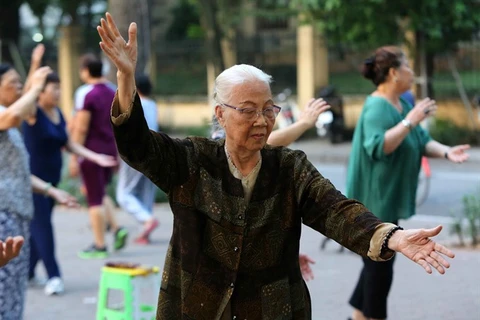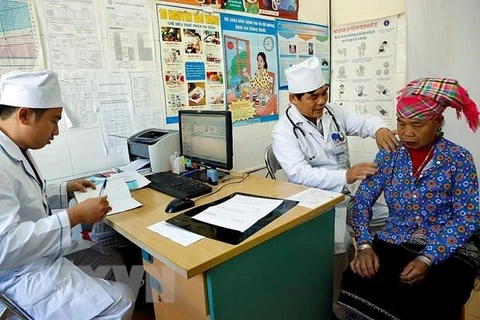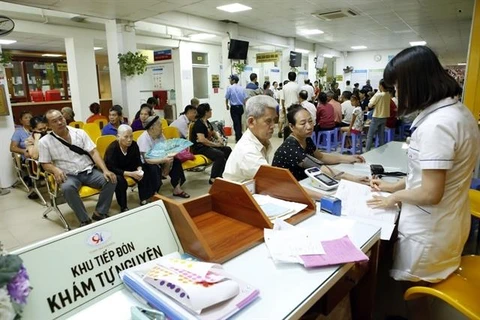 A doctor uses acupuncture to treat an old woman at Tan Hoi Commune health centre in Hanoi's Dan Phuong district. (Photo: VNA)
A doctor uses acupuncture to treat an old woman at Tan Hoi Commune health centre in Hanoi's Dan Phuong district. (Photo: VNA) Hanoi (VNS/VNA) - Despite the number of people covered by health insurance rising in Vietnam, the abuse of health services and the health insurance fund is still a challenge for the country.
Le Van Kham, director of the Department of Health Insurance under the Ministry of Health (MoH), made the statement at a conference on December 12 in Hanoi to review five years of the Social Health Insurance Law and make recommendations for the revised law.
More than 83.5 million people across Vietnam were covered by health insurance by the end of last year, representing 88.5 percent of the population, Kham said.
The number of health insurance holders has exceeded the goal set by Prime Minister Nguyen Xuan Phuc of reaching 80 percent of the population joining social insurance by the end of 2020.
However, he pointed out several common health service abuses, including the prescription of unnecessary high-tech tests and health centres asking patients to pay for medicine covered by health insurance.
Some facilities provide medical technical services to patients not in accordance with professional procedures issued by the Ministry of Health or practitioners did not have necessary certificates.
Some patients were hospitalised when it was not necessary or had their treatment at the hospital prolonged, he said.
Addressing the conference, Nguyen Truong Son, Deputy Minister of Health, said health insurance was an important social policy of the Party and the State, a financial mechanism in the healthcare sector for the sake of equity, efficiency and protection of people’s health.
The quality of health check-ups and treatment with health insurance had improved, he said.
People have access to modern technical service and new and effective types of drugs which helped them overcome sickness and fatal disease.
The health insurance fund has become a basic financial source for the operation of hospitals and health facilities, Son said, adding that the health insurance policy had ensured risk sharing among health insurance participants.
He said that there were still shortcomings with the Social Health Insurance.
He cited unspecific guidance documents and inconsistencies between the law and other legal documents related to health insurance. The low competence of health facilities and their staff was also a problem.
Therefore, he said, it was essential to revise the law.
One of contents of the draft Health Insurance Law amended by the MoH was the establishment of an independent health insurance assessment agency, separate from the current Vietnam Social Security.
The ministry also suggested setting up a National Advisory Council whose operation would be decided by the Government.
According to Kham, the organisation of an independent agency will help ensure the transparency and objectiveness of the assessment while the National Advisory Council will ensure the Social Health Insurance Law is carried out in a consistent manner./.
VNA























